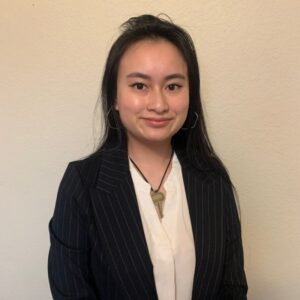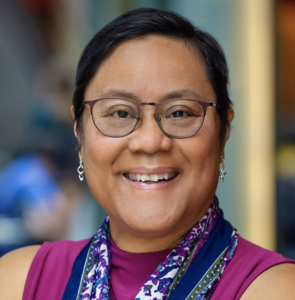MI-LSAMP Research Team
Welcome to Broadening Participation in STEM. This section of the website provides some general information about the activities of the research team. First, let’s introduce ourselves by telling you a little about ourselves and why we think understanding strategies related to diversifying STEM is a worthwhile scholarly endeavor.

Phillip J. Bowman is a Professor of Higher Education at the University of Michigan where he is also Director of the Diversity Research and Policy Program (DRPP) and Faculty Associate at the Institute for Social Research. DRPP was launched in 2008 with funding from the National Institutes of Health while Bowman was Founding Director of the National Center for Institutional Diversity (2006-2013), a national think-tank for bridging innovative scholarship with policy-relevant social change. Since 2013, the DRPP priorities have continued to evolve through strategic alliances between the School of Education, Institute for Social Research and other stakeholders at UM and beyond. As a theoretical and applied social psychologist, Bowman’s scholarship focuses on higher education, racial/ethnic diversity, and related public policy issues (e.g. workforce inequalities, urban family poverty, health disparities and social justice); he has a growing interest in multilevel strengths-based intervention strategies to reduce inequalities, disparities and opportunity gaps. Professor Bowman teaches several related courses including Race, Ethnicity and Gender in Higher Education; Diversity, Merit and Higher Education; and Strengths-Based STEM Pipeline Interventions.
Prior to 2006, Bowman served as Director of the Institute for Research on Race and Public Policy with the University of Illinois at Chicago and also as a Professor in Psychology, African American Studies and Educational Policy Studies with the University of Illinois at Urbana-Champaign. At Northwestern University for a decade, Professor Bowman held numerous leadership roles as Professor of Education, Human Development, Social Policy and African American Studies including Faculty Fellow with the Institute for Policy Research, Faculty Affiliate with the Joint Center for Poverty Research, Co-Coordinator of the Spencer Training Grant in Education and Social Policy, Director of the Summer Academic Workshop, Director of the Social-Behavioral Science Scholars Program, Chair of the Graduate Program in Counseling Psychology, and Chair of the Department of African American Studies. He has been a Rockefeller and Senior Ford Postdoctoral Fellow and serves as a national and international consultant on policy-relevant diversity issues. His research has been supported by the Robert Wood Johnson Foundation, Spencer Foundation, state agencies, and several federal agencies, including the National Institutes of Health and the National Science Foundation. Bowman received his Ph.D. in Social Psychology from the University of Michigan where he began his professional career as an Assistant Research Scientist at the Institute for Social Research and Assistant Professor in Psychology and Afroamerican and African Studies.
I was raised in a small town in California; the population of this town was less than 10,000 when I was in high school. This town was primarily agricultural, although there were other industries present. Because property taxes fund school districts, the quality of the public schools that I attended was not the same as the quality of the public schools located in more affluent areas of California. My high school did not have extensive counseling for college-going students, because so few of its students at that time pursued higher education after graduation.
Programs such as MI-LSAMP have personal meaning to me. While college students now may not be facing the same challenges and barriers to higher education as I did, I understand what that struggle can entail. As the first person in my nuclear family to attend and graduate from college, and obtain graduate degrees I had few role models and advisors with whom I could discuss college-related decisions, including what majors I could possibly pursue.
It’s important for underrepresented, underserved, and non-traditional students to understand that the challenges and barriers to higher education are attributable to a variety of factors beyond their individual, personal or familial circumstances. Institutions of higher education and access and equity issues in post-secondary education have and are shaped by social, historical, and political forces. Research conducted in the context of these factors not only contributes to basic knowledge about multi-level factors that affect students’ success, but they also can serve as contributing evidence for self-empowerment and group advocacy related to educational policies.
To see additional information about my role at the Diversity Research & Policy Program in the University’s School of Education, click the link below my pic.

Julio D. Canino is a Master of Social Work (MSW) student at the University of Michigan. He has experience with qualitative and quantitative research. Currently, he is a research assistant in the Diversity Research and Policy Program. As a researcher, Julio has contributed to uncovering the systemic oppression that undocumented individuals face in Puerto Rico. His passion for research stems from a social justice framework. He believes research is a way to expose systemic and social oppressions because common objectives must be identified to develop new strategies to advance human rights and achieve social justice. After obtaining his MSW, Julio plans to apply for a Ph.D. program specializing in Social Work to contribute to immigration reform to help achieve an equitable and diverse society.
Denise Fajardo is a rising junior at the University of Michigan. She was born in Manila, Philippines then moved to Virginia in 2007 before finally settling in Troy, Michigan. Previously, she has been a part of the Undergraduate Research Opportunity Program (UROP) and UROP Research Scholars in her freshman and sophomore years.
To her, MI-LSAMP and other similar programs make a meaningful contribution to the underrepresented, underserved, and non-traditional student community by doing research to first understand them. Because their situations may not fit the majority of students, it is important for them to do research as well as for students to participate in the research in order to suggest programs or interventions in the future that will be helpful to those students.


I am José González, a Master of Social Work student at the University of Michigan. I have experience working with qualitative and quantitative research and am currently a research assistant/project coordinator in the Diversity Research and Policy Program. As a social worker and researcher, I’m passionate about working with older adults to empower them to attain a better quality of life, especially by promoting technology use, physical activities, and healthy diets. After graduation, I plan to work in health settings with the elderly for a couple of years and then pursue a Ph.D. in Social Work specializing in older adults and the social determinants of health affecting them.
In my opinion, MI-LSAMP and similar programs will promote Diversity, equity, and inclusion in STEM higher education. MI-LSAMP provides a series of programs like NxtGEN STEM Scholars Program and holds various events, workshops to support minority students to pursue STEM degrees. I believe this will inspire more underrepresented, underserved and non-traditional students to be well-prepared for graduate STEM study and choose STEM careers in the future.
My current job in the MI-LSAMP research is focusing on the side of survey data management and analysis. During my research on who is right now engaged in MI-LSMAP, I can have a more direct feeling and an overview of the factors that affect students interested in STEM majors or future careers. Besides, I believe the analysis on the responses of surveys from students is very meaningful because it will help MI-LSAMP to get clear ideas about current students’ feedback so that MI-LSAMP will improve the program and to promote students’ success in STEM better in the future.


Hello! My name is Marya, and I believe that MI-LSAMP and similar programs are important to bolster academic confidence in underrepresented, underserved, and nontraditional students. One of the most exciting parts of entering a four-year institution is meeting people from backgrounds very different from your own. But, this experience can also highlight disparities in educational opportunities before college. Programs such as MI-LSAMP are crucial to address the inequity that many underrepresented college students face when beginning their STEM careers in higher education. It is just as crucial to continue research on these programs and their participants to track and bolster program elements that contribute to student success.
The MI-LSAMP project and similar programs are essential for students who are underrepresented, underserved, and non-traditional. STEM programs and STEM education are often viewed as impenetrable. Oftentimes students will dislike STEM as a field because of bad experiences with instructors and/or class content that makes them feel like they are not cut out for STEM. Programs like the MI-LSAMP project are vital because they give students the opportunity to form community and to have structural support where they might have been struggling. Many underrepresented and nontraditional students don’t recognize the degree to which others in their classes receive outside support that is not available to them, which is why the MI-LSAMP project is so important. Researching these topics is necessary to understand the true impacts of the LSAMP and similar programs to further define our conception of the needs of students in STEM, and to further develop programs to meet the needs of underrepresented, underserved, and non-traditional students.


Jordan Peyton [ 游 敏 ] (she/they) is a Ph.D. student and Graduate Research Assistant for the LEARN-CS group at The Ohio State University in the Engineering Education Department. Currently, Jordan serves as a Research Project Coordinator for the Diversity Research and Policy Program (DRPP).
They have worked in K-12, Higher Education, Corporate DEI, and APIDA Nonprofits. Research interests include Minority Serving Institution (MSI) partnerships with Predominantly White Institutions (PWIs) in engineering spaces, undergraduate to graduate pathways for MSI students, and disaggregating the data in the APIDA umbrella. They intend to utilize her B.S. in Biological Systems Engineering from Kansas State University and background in multicultural student programming to continue innovating ways to support STEM students. They have previously obtained their Master of Arts in Higher Education with a concentration in Diversity and Social Justice at the University of Michigan’s Center for the Study of Higher and Postsecondary Education (CSHPE). Jordan worked in framework development and data collection and analysis as an MROP Graduate Research Fellow at the DRPP.
In their free time, you can find them spending time in Texas with family and friends, being in nature by hiking trails, and scoping out good eats.
Jennifer believes that LSAMP and similar programs are essential to supporting underrepresented, underserved, and non-traditional students. Indeed, while students from these groups are often highly motivated to succeed and are bolstered by a great deal of family support and investment in their success, they often enter college with some knowledge gaps that disadvantage them relative to their more privileged counterparts. These areas of concern include gaps in their high school academic experiences, especially in STEM subjects, and in their knowledge about navigating the college application and college-going process.
Once students are enrolled in academic and social support programs such as LSAMP, it is essential that research be conducted to determine the impact that the programs have on their persistence in their STEM respective disciplines/fields not only to bachelor’s degree completion but to job entry and advanced studies (graduate degrees). The knowledge yielded from such research helps to add to the body of literature on factors contributing to the success of underrepresented STEM students and offers implications for practice to people who develop and run support programs like LSAMP. Students involved in these research studies are truly of service both to LSAMP programs and similar support programs that assist other STEM students across a plethora of colleges and universities nationwide.

